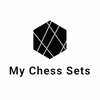Introduction
Chess, a strategic board game played by millions worldwide, has long been associated with intellect and cognitive skills. Commonly regarded as a sport that promotes various mental faculties, many believe that playing chess can boost intelligence. This article explores the impact of chess on cognitive abilities, discusses the research behind this popular claim, and examines whether playing chess genuinely enhances intelligence.
The Relationship Between Chess and Cognitive Abilities
Chess requires a blend of concentration, strategic thinking, foresight, and problem-solving skills. These abilities are crucial in chess as players must anticipate their opponent's moves and plan their own strategies several moves ahead. The game also demands memory retention, as players need to recall previous games and common strategies or openings.
Analytical and Strategic Thinking
Chess enhances analytical thinking by challenging players to engage deeply with the complexities of each position on the board. Players evaluate multiple possibilities, weigh the pros and cons of different tactics, and make decisions that have both immediate and long-term consequences. This process, repeated game after game, may build more proficient analytical skills in regular players.
Memory Improvement
Experienced chess players often demonstrate significant memory capacity, as they remember vast numbers of complex patterns and sequences. This aspect of chess can provide excellent training to improve and enhance memory, potentially aiding in other areas of life requiring this skill.
Problem-solving Skills
Each move in a game of chess presents a new problem that requires a solution. Regular practice of this problem-solving ability could translate to improved skills in real-life situations that require similar analytical and strategic thinking.
Research on Chess and Intelligence
Various studies have been conducted to determine if there is a scientific basis for claims that chess can enhance intelligence. One of the more significant debates in this field concerns whether chess specifically increases general intelligence (IQ) or if it merely improves cognitive abilities pertinent to the game itself.
Studies Linking Chess and IQ
Some studies suggest a correlation between playing chess and increased IQ in children. A review of the educational benefits of chess indicates that the game can improve children's spatial, numerical, administrative-directional, and verbal aptitudes, which are components often measured in traditional IQ tests.
Chess as a Cognitive Exercise
While the link between chess and an actual increase in IQ may be debatable, there is more substantial evidence supporting the notion that chess acts as an excellent cognitive exercise. Regular engagement in chess challenges the brain and helps maintain mental sharpness, suggesting that chess might be more about honing existing cognitive skills than increasing inherent intelligence.
Practical Implications
If playing chess can enhance cognitive abilities, even if not directly raising IQ, it remains a valuable educational tool. Schools around the world have incorporated chess into their curriculum not only for the potential mental benefits but also to foster important character traits such as patience, discipline, and persistence.
Chess in Educational Settings
Implementing chess programs in schools can help students improve their thinking skills, focus, and academic performance. Additionally, the game is accessible and inexpensive, making it an excellent option for educational institutions to consider.
Conclusion
While definitive evidence that chess boosts intelligence remains elusive, its impact on enhancing specific cognitive abilities is well-supported. Whether as a component of educational curricula or simply as a leisure activity, chess offers substantial benefits and is a worthwhile pursuit for those looking to challenge and improve their mental functions.
Explore our large collection of luxurious chess sets!